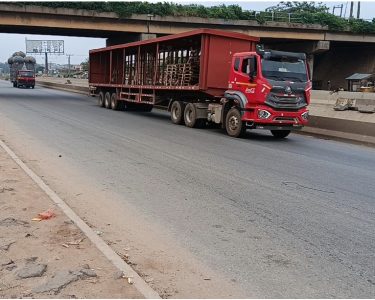Proposed U.S. Remittance Tax
How Nigeria Can Mitigate the Fallout
By all measures, Nigeria’s economy is at a crossroads — vulnerable, resilient, and increasingly exposed to the shifting tides of global policy. The proposed 3.5% U.S. tax on foreign remittances, embedded in the so-called “One Big, Beautiful Bill,” is the latest wave threatening to wash away a crucial pillar of the Nigerian economy.
With an estimated $215 million in remittances at risk annually, the implications are sobering. But while the storm may be externally triggered, how Nigeria responds will determine whether we capsize or recalibrate.
A Critical Hit to a Fragile Economy
Let’s be clear: remittances are not just supplementary income; they are lifelines. With $20.93 billion received in 2024, diaspora inflows accounted for nearly 6% of Nigeria’s GDP and were second only to crude oil in foreign exchange generation. These funds support education, healthcare, small businesses, and entire communities.
In a country grappling with currency volatility, rising inflation, and a fragile social safety net, the proposed U.S. tax is more than a fiscal inconvenience; it’s a blow to household resilience and macroeconomic stability.
The added levy could raise the total cost of sending money to Nigeria from the U.S. by nearly 10%, which may not only reduce the volume of formal remittances but also shift flows to informal, unregulated channels. That means less oversight, more exposure to fraud, and a dangerous opacity in Nigeria’s already stressed foreign exchange market.
But amid the frustration, finger-pointing isn’t strategy. The U.S. may be turning inward under the banner of self-interest, but Nigeria cannot afford to be passive in the face of external economic disruptions.
Charting a Path Forward: Pragmatism Over Panic
Rather than cry foul alone, Nigeria must craft a layered, strategic response, one that is diplomatic, innovative, and rooted in domestic reform.
1. Diplomatic Engagement and Advocacy
The first imperative is advocacy. The Nigerian government must actively engage U.S. lawmakers and stakeholders through diplomatic channels, highlighting the human and developmental costs of the proposed tax. Remittances are not luxuries; they are tools of poverty alleviation and economic development. Coordinated pressure from affected countries, especially across Africa and Latin America, could yield revisions or exemptions. Nigeria must lead that charge.
2. Reducing Dependence on the U.S. Corridor
While the U.S. is a major source of remittances to Nigeria, diversification is now more urgent than ever. Efforts should be made to boost remittance channels from Europe, the Middle East, and intra-African corridors, which may be less affected by similar policies. A concerted drive to strengthen bilateral financial agreements with these regions could help rebalance Nigeria’s exposure to U.S.-centric remittance flows.
3. Digital Innovation and Cost Efficiency
The Central Bank of Nigeria (CBN) and fintech stakeholders must double down on strategies that lower the cost of sending and receiving money through formal channels. This includes expanding the reach of digital platforms, negotiating better transaction fees with remittance operators, and incentivizing the use of formal transfer mechanisms through exchange rate bonuses, like previous CBN initiatives.
A 3.5% U.S. tax should not automatically translate into a 10% cost burden for the Nigerian recipient. With the right fintech partnerships and regulatory alignment, costs can be absorbed, mitigated, or redistributed more fairly.
4. Policy Incentives and Diaspora Bonds
To retain diaspora loyalty and strengthen formal flows, Nigeria can offer targeted financial instruments like diaspora bonds, housing schemes, or tax breaks for diaspora-led investments. If remitting funds becomes punitive, alternative avenues for economic engagement must be attractive, transparent, and impactful.
5. Reform of the Informal Sector
While informal channels will likely grow in the face of higher transaction costs, Nigeria must not abandon oversight. Instead, the goal should be to formalize informal flows. This can be achieved by licensing community-based remittance agents, improving rural access to financial services, and simplifying KYC (Know Your Customer) requirements, especially for recipients in underserved regions.
Conclusion: Turning Adversity into Opportunity
The proposed U.S. tax is an unfair burden on already strained families. It exemplifies a broader retreat in global cooperation, and Africa, as usual, bears the disproportionate brunt. But Nigeria has a choice: to either lament the loss or lead a proactive, strategic response that not only buffers the shock but builds resilience.
This moment calls for more than reaction. It calls for innovation, diplomacy, and the political will to reimagine how we engage our diaspora, not just as senders of money, but as partners in nation-building.
If Nigeria gets this right, the loss of $215 million may well become the catalyst for a much-needed transformation in how we manage, track, and empower remittance flows.
The challenge is real. But so is the opportunity to chart a smarter path.







